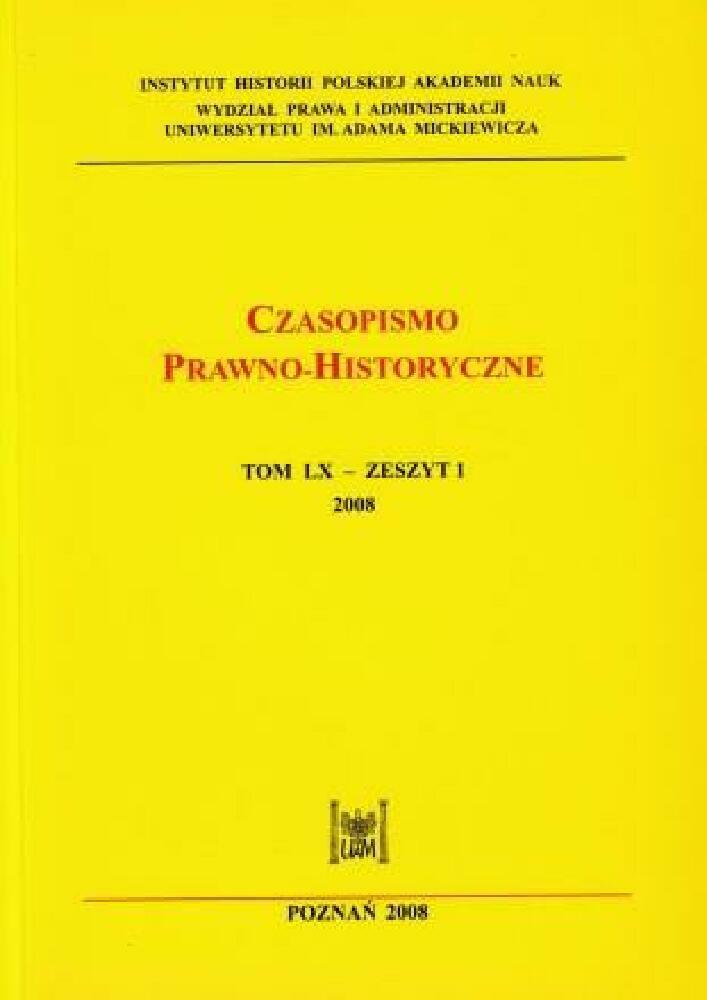Abstract
The author attempted a critical analysis of the institution of a referendum and looked at its development througout the history of political systems and ideas. That task did not prove easy or simple, due to its multiple threads and complexity.
There have been a number of discussions on that subject and all tended to focus on two basic issues: proposition of an adequate definition of a referendum and explanation of its origin. In the literature, a referendum is predominantly understood as a legislation process with actual participation of a society, but at the same time it is presented as a typical plebiscite institution. Naturally, the differences that originate from different understanding of a referendum end in disputes concerning its genesis. Despite some claims that the roots of democracy are to be traced in tribal systems and medieval urban republics, the oldest sources of a referendum are believed to be found in the Greek democracy in the Athens and in the democracy of the Republic of Rome. Some researches also point out to the thoughts propagated by St. Thomas Aquinas and Marsilius of Padua, and some refer to the tradition of the Helvetic Republics. A special place in those disputes is reserved for the Renaissance thought which, in the author's opinion, had a decisive impact on the shaping of the referendum we know today.
Funding
Digitalisation and OA co-funded by the Minister of Education and Science (Poland) under contract no. BIBL/SP/0002/2023/1
License
Copyright by Faculty of Law and Administration, Adam Mickiewicz University, Poznań, 2008
OPEN ACCESS




